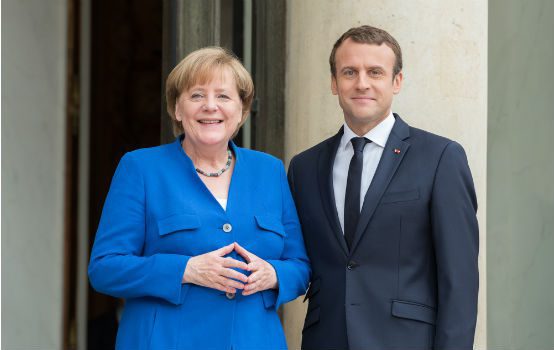Stopped Clocks: The European Union Gets War With Iran Exactly Right

Regular readers of my contributions to this site may have noticed that I am in no way a fan of the European Union. Yet even with the EU, the stopped clock principle applies: they have to be right sometimes. And when Federica Mogherini, high representative of the EU for foreign affairs and security policy, said that everyone should tread carefully when it came to the attack on the oil tankers near the Strait of Hormuz, she was absolutely correct.
Mogherini stated: “We are living in crucial and delicate moments, where the most relevant attitude to take—the most responsible attitude to take—is, and we believe should be, maximum restraint, and avoiding any escalation on the military side.”
This month, one of the EU’s top advisors on security questions declared that no military intervention from the European side should take place. This echoes French President Emmanuel Macron saying that France had no place in such interventions, as well as German Chancellor Angela Merkel calling for a peaceful solution to the Iran problem. Seventy-four percent of German opposed a military intervention in Syria last year. In 2002, 71 percent of Germans opposed the war in Iraq, as did 64 percent of the French. During anti-Iraq war protests that took place on February 15, 2003, 100,000 people demonstrated in Brussels, 75,000 in Amsterdam, between 100,000 and 200,000 in Paris, between 300,000 and 500,000 in Berlin, 150,000 in Athens, 60,000 in Budapest, and well over 600,000 people in Rome.
And in the United Kingdom, more than one million showed up to protest in London. The UK’s participation in the Iraq war dragged the reputation of Prime Minister Tony Blair and his Labour Party through the mud. A subsequent inquiry made the former UK leader subject to public prosecution because the legal basis for military action was “far from satisfactory.” Blair’s involvement in Iraq has made it difficult for any party in Westminster to legitimate any war to its constituents, most of whom feel that the unholy coalition of Blair and Bush tricked them into a war they should never have been a part of. This is a major reason why the British House of Commons voted down David Cameron’s 2013 attempt to intervene militarily in Syria.
With the UK currently undergoing a leadership contest within the Conservative Party, and with Prime Minister Theresa May on her way out, it’s unlikely the hawks will take control of Westminster anytime soon. The current favorite to win the PM position is former London mayor and former foreign secretary Boris Johnson, who has yet to voice his opinion on the Iran issue. His rival, current foreign secretary Jeremy Hunt, calls for de-escalation.
That hasn’t stopped some of the usual pro-war suspects from coming out of the woodwork. Daily Telegraph columnist Con Coughlin blames the idea that the United States could be partly responsible for the recent escalation with Iran on the “European Union’s deep-rooted anti-Americanism.” In 2003, Coughlin “revealed” information claiming that Iraqi officials met with Mohamed Atta, one of the 9/11 hijackers. Newsweek reported in 2003: “U.S. officials and a leading Iraqi document expert tell Newsweek that the document is most likely a forgery—part of a thriving new trade in dubious Iraqi documents that has cropped up in the wake of the collapse of Saddam’s regime.”
Apparently we have found the British John Bolton. Just no fancy mustache.
In a January poll, 48 percent of Germans favored a withdrawal of their country’s troops from Afghanistan, with 29 percent opposing it. In 2009, almost two thirds of the French opposed the intervention in Afghanistan. In 2012, all French combat troops were withdrawn under President François Hollande. It would be hard to convince either Germany or France to participate in any military action in Iran, particularly since both countries have made it clear that they stand by the 2015 Iran nuclear deal.
Italy’s Prime Minister Giuseppe Conte, who is not known for his efforts to please his European counterparts, is an exception: he says that he is ready to take a “more rigorous” approach towards Iran. Interior Minister Matteo Salvini has even come under fire from Iranian officials after he gave interviews in the United States explaining that he was “happy that Italy has long since relaxed its relations with Iran, a country that wants to wipe out Israel in 2019 has no right to speak.” However, Italians are hardly known for following through on their statements in TV interviews. And that’s without even mentioning Italy’s military record.
So overall, in Europe, support for the hawks inside the Trump administration looks grim. Without at least a handful of European countries supporting an intervention, the United States would look like it was standing alone on the world stage, and America could once again come under fire for needless aggression. The WMD lies of the early 2000s have set the bar high for interventions based on military intelligence. And Syria has shown that without conclusive evidence, Europe isn’t about to send in the troops.
Bill Wirtz comments on European politics and policy in English, French, and German. His work has appeared in Newsweek, the Washington Examiner, CityAM, Le Monde, Le Figaro, and Die Welt.
Comments